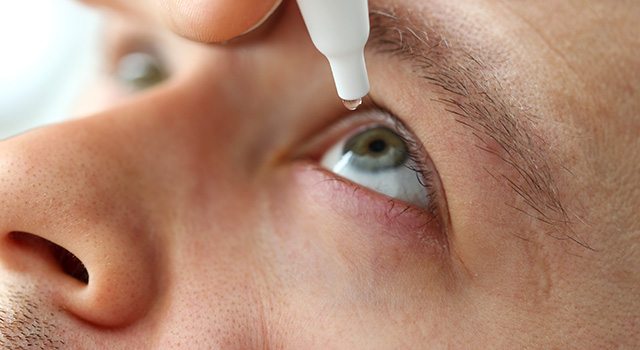
If you find yourself constantly reaching for eye drops, it’s time to start looking into the bigger issue: Why do you need them so often? While they may provide a quick and satisfying fix for irritated or itchy eyes, they don’t focus on what might be causing the irritation to begin with.
Two signs that you’re overusing eye drops: you often exceed the daily recommended dose and/or you view eye drops as a cure rather than a temporary treatment.
Risks of Overusing Eye Drops
When overusing eye drops you can run the risk of:
- Washing away your natural tears. Artificial tears feel great as they lubricate your eyes and help with insufficient tear production. But overuse can literally wash away the natural moisturizers and your natural tears that protect your eyes.
- Rebounding. As the effects of the eye drops subside or upon discontinuation of the drops, the original eye symptoms may return stronger than before. This is known as eye rebounding. Eye drops clamp down on the blood vessels in the eye to stop itchiness, which means your sclera isn’t getting the oxygen and nutrients it needs. When you stop using eye drops, or their effects wear off, your eyes may work in overdrive to deliver oxygen to those vessels.
- Masking a more serious problem. Addressing the symptoms of red, itchy eyes rather than the cause could be more serious than you think.
Conditions That Eye Drops Could Be Masking
Red, itchy eyes are a symptom of several conditions, including:
- Blepharitis – Red and inflamed eyelids, caused by a fungal or bacterial infection, gland dysfunction, parasites, or dry eye, all of which require treatment beyond over-the-counter eye drops.
- Eye trauma – Scratching or rubbing your eye can cause blood vessels to break, making the eye itchy and red. Some more serious traumas will require prescription eye drops or surgery.
- Eye strain – Focusing on work all day and night can cause irritated, tired, and strained eyes.
- Foreign objects – An eyelash, dust, or something worse could be in your eye. If you have long-term issues with itchy or dry eyes, make sure a foreign body isn’t the culprit.
- Allergies – Allergies to the environment or pets can cause dry, itchy eyes.
- Pink eye – A bacterial or viral eye infection, also called conjunctivitis, can cause burning, swelling, and itchiness.
- Dry eye syndrome – Irritation, redness and itchiness are common symptoms of dry eye syndrome. In severe cases, DES can damage the cornea.
Regardless of why you often use eye drops, the only way to get to the root cause of your symptoms is a thorough eye exam. Don’t cover up the symptoms with eye drops.
If you’re suffering from irritated, dry eyes that haven’t resolved on their own, contact Professional VisionCare in Lewis Center. We can help you find the long-lasting relief you’ve been looking for.
At Professional VisionCare, we put your family’s needs first. Talk to us about how we can help you maintain healthy vision. Call us today: 614-898-9989 or book an appointment online to see one of our Lewis Center eye doctors.
Want to Learn More? Read on!
FOLLOW US:
Frequently Asked Questions with Dr. Kyla S. Cologgi
Q: What are symptoms of dry eye syndrome ?
- A: Irritation, redness and itchiness are common symptoms of dry eye syndrome. In severe cases, DES can damage the cornea.
Q: Are OTC eye drops safe ?
- A: Eye drops may provide relief. But don’t overuse them. Overuse can cause more harm than good. Find out what happens when you overuse those relieving eye drops.
Quality Frames For Prescription Eyeglasses & Computer Glasses In Lewis Center, Ohio. Visit Professional VisionCare for an eye exam and eyeglasses that match your style.































